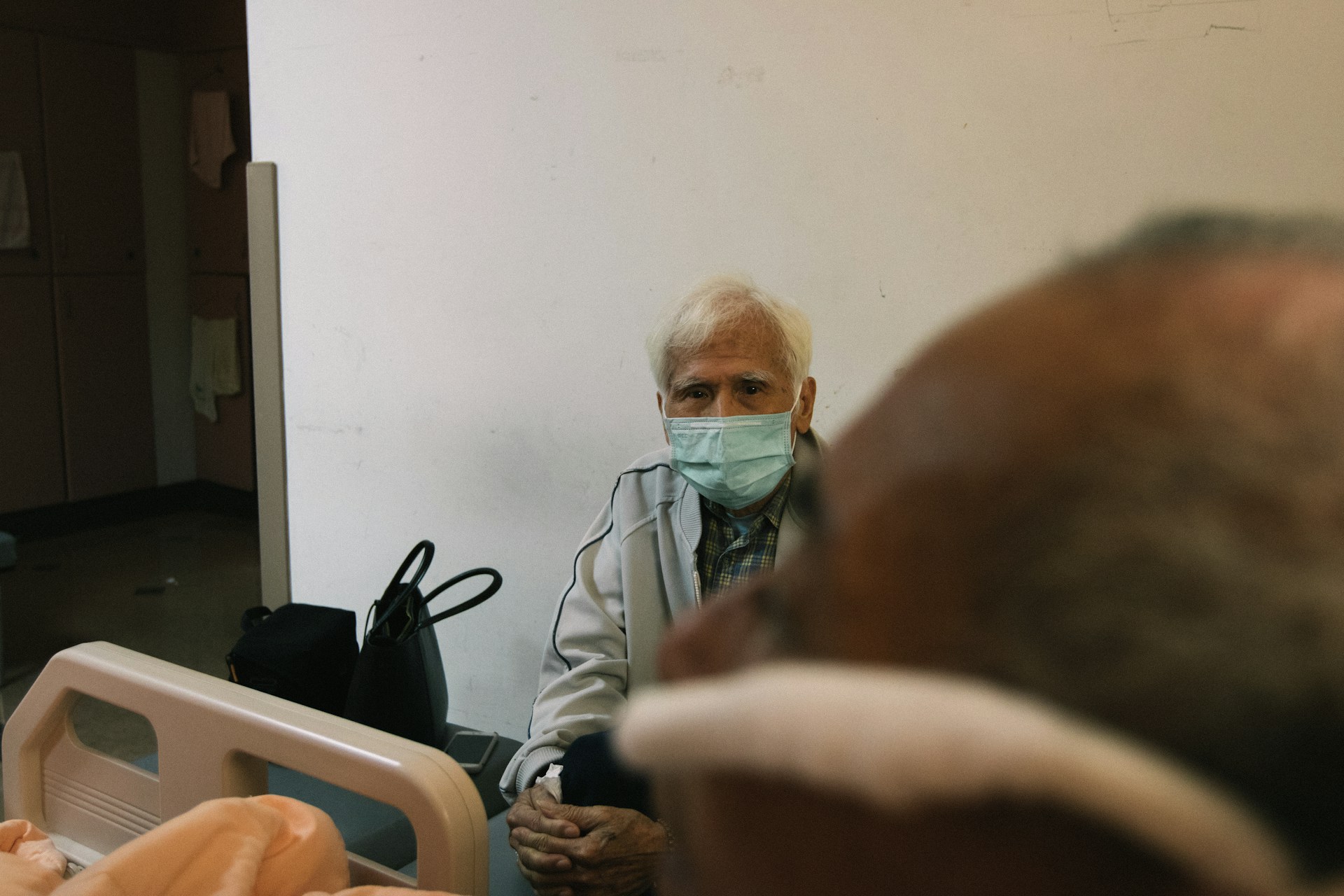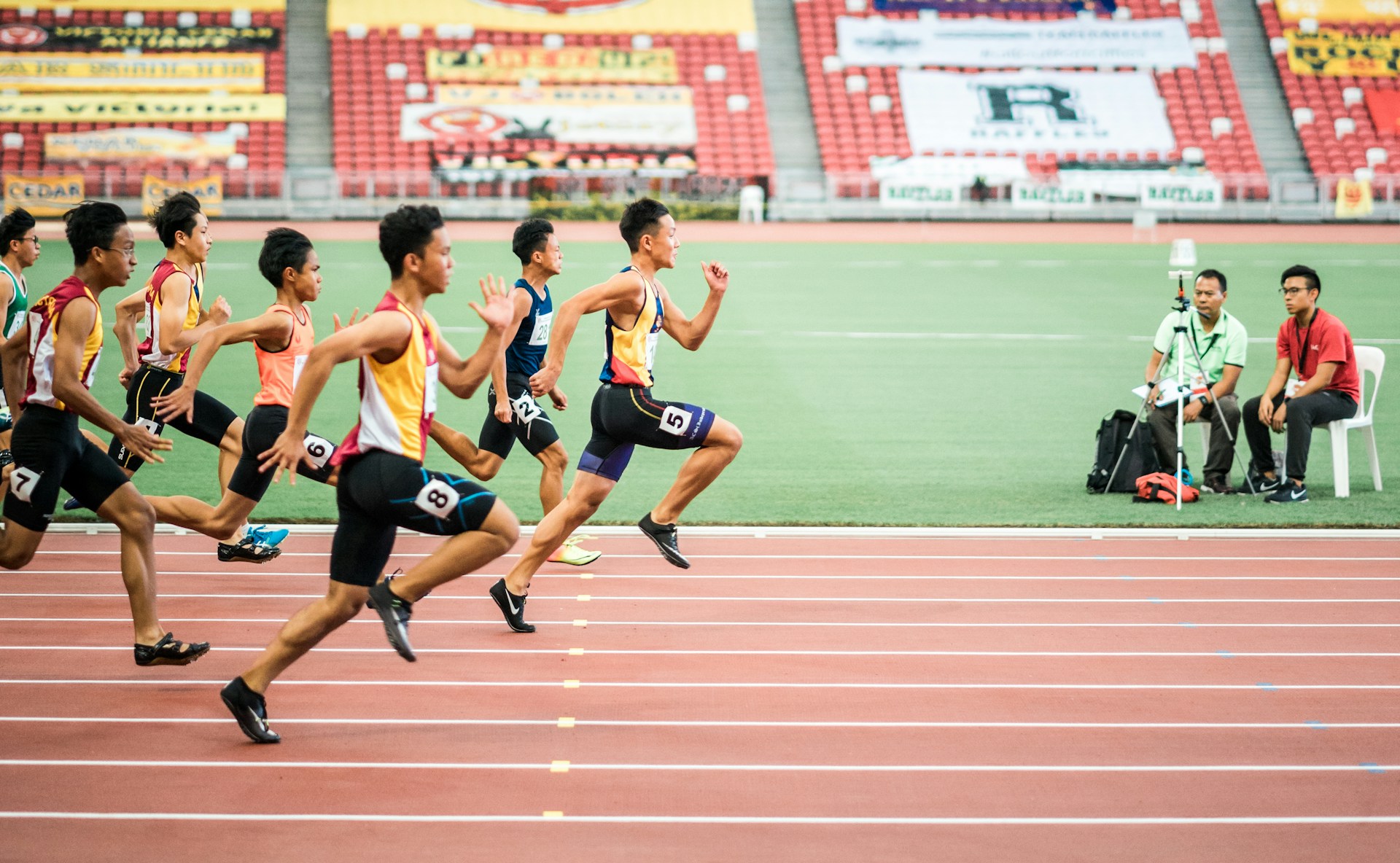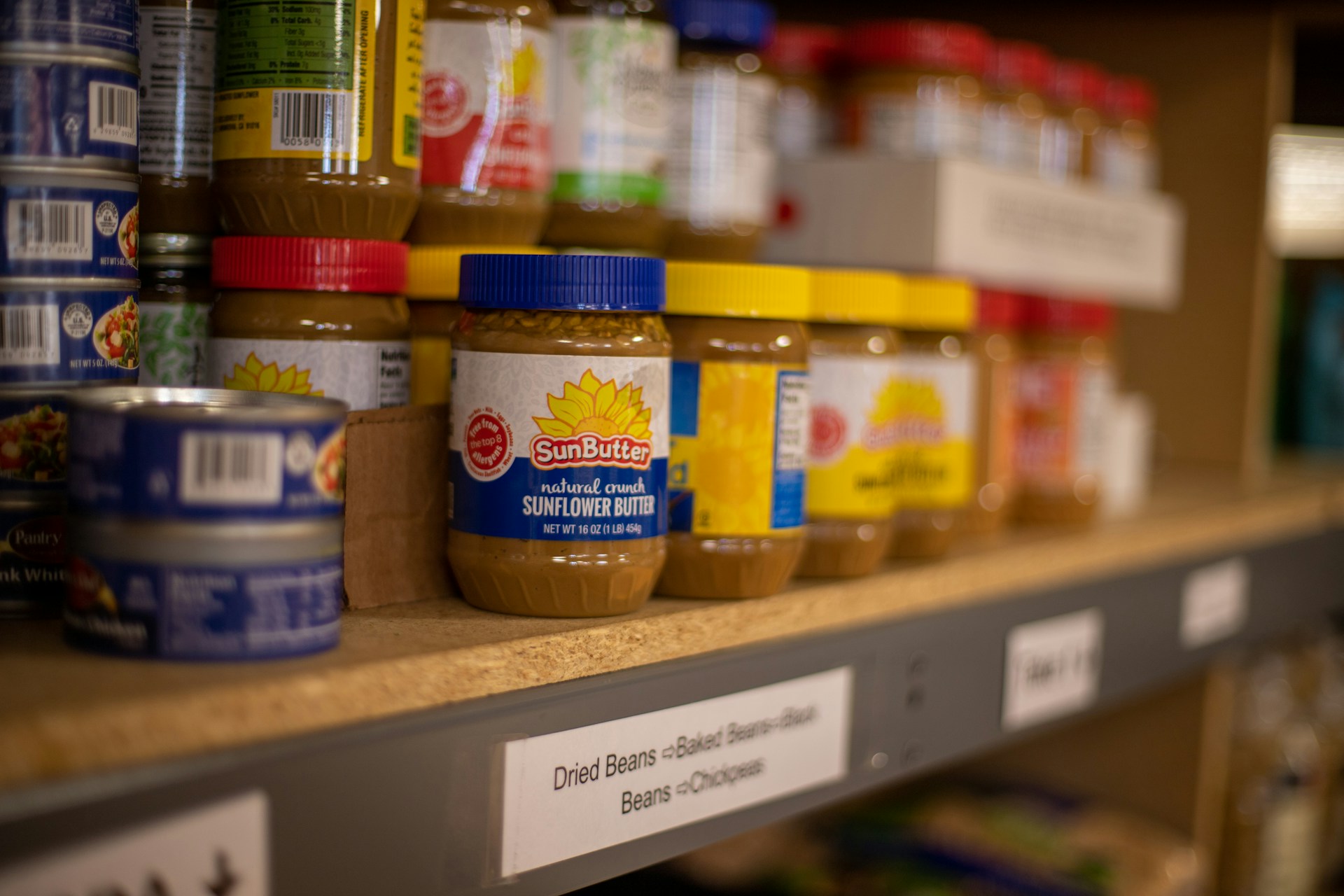Dominant Factor of Household Food Security During COVID-19 Pandemic in Depok City in 2020 (Analysis of Secondary Data 2020)
Downloads
Background: Food security is a condition when everybody has adequate physical and economical access to get nutritious and safe food to lead healthy and active life. COVID-19 pandemic can cause food security disruptions. This is because several people have lost their jobs and income so that they are no longer able to meet their food needs.
Objectives: This study aimed to determine the dominant factor related to food security during COVID-19 pandemic in Depok City in 2020.
Methods: This quantitative research used cross-sectional study. The data used was secondary data from the research entitled Situation of Family Food Security and Coping Mechanisms in COVID-19 Pandemic Situation in Urban and Semi-Urban Areas. The total of samples for this secondary study were 259 households who had pregnant mother, breastfeeding mother, infant or toddler. Sampling process from the primary research was carried out by purposive sampling. Researchers disseminated research information through social media and posyandu cadres and then conducted screening. Respondents who met the screening requirements would be sent an electronic mail or Whatsapp containing a research questionnaire. Data was analyzed using McNemar test, chi-square test and multiple logistic regression test.
Results: This study indicated that 61.8% of households in Depok City experienced food insecurity. The results of the bivariate analysis showed that household income during pandemic, husband's and wife's education, the number of high educated people in household significantly related to household food security during COVID-19 pandemic. The dominant factor of household food security during the COVID-19 pandemic in Depok City in 2020 was wife's education (OR=3.978) after being controlled by the wife's occupation during pandemic, household income during pandemic, and husband's education.
Conclusions: Households with low educated wife were at risk to be food insecure 4 times higher than households with high educated wives.
WHO. Novel Coronavirus (2019-nCoV) Situation Report - 1. WHO Bulletin https://www.who.int/docs/default-source/coronaviruse/situation-reports/20200121-sitrep-1-2019-ncov.pdf?sfvrsn=20a99c10_4 (2020).
WHO. Novel Coronavirus(2019-nCoV). WHO Bulletin https://www.who.int/docs/default-source/coronaviruse/situation-reports/20200211-sitrep-22-ncov.pdf?sfvrsn=fb6d49b1_2 (2020).
WHO. WHO Director-General's Opening Remarks at the Media Briefing on COVID-19 - 11 March 2020. https://www.who.int/director-general/speeches/detail/who-director-general-s-opening-remarks-at-the-media-briefing-on-covid-19---11-march-2020 (2020).
WHO. WHO Coronavirus Disease (COVID-19) Dashboard. https://covid19.who.int/?gclid=CjwKCAiA17P9BRB2EiwAMvwNyAcjnu2mp1LqhAaAcN3MEL_EuYkJyqBROOVUiPyxaZDB-SuT1bSp6xoCnRYQAvD_BwE (2021).
Gugus Tugas Percepatan Penanganan COVID-19. Peta Sebaran. https://covid19.go.id/peta-sebaran (2021).
Pusat Informasi & Koordinasi COVID-19. Sebaran Kasus COVID-19 di Jawa Barat. https://pikobar.jabarprov.go.id/distribution-case (2021).
BPS. Berita Resmi Statistik: Keadaan Ketenagakerjaan Indonesia Agustus 2020. (2020).
FAO, IFAD, UNICEF, WFP & WHO. Food Security and Nutrition in the World: Transforming Food Systems for Affordable Healthy Diets. IEEE Journal of Selected Topics in Applied Earth Observations and Remote Sensing (FAO, 2020).
Leddy, A. M., Weiser, S. D., Palar, K. & Seligman, H. A conceptual model for understanding the rapid COVID-19-related increase in food insecurity and its impact on health and healthcare. Am. J. Clin. Nutr. 112, 1162–1169 (2020).
FAO. An Introduction to the Basic Concepts of Food Security. (FAO Food Security Programme, 2008). doi:10.1057/9780230589780_35.
Demétrio, F., Teles, C. A. de S., Dos Santos, D. B. & Pereira, M. Food insecurity in pregnant women is associated with social determinants and nutritional outcomes: A systematic review and meta-analysis. Cienc. e Saude Coletiva 25, 2663–2676 (2020).
Nurdini, E. D. & Mahmudiono, T. Hubungan Status Ketahanan Pangan Rumah Tangga dengan Anemia pada Ibu Hamil ( Studi di Desa Bektiharjo Kecamatan Semanding Kabupaten Tuban ). Media Gizi Kesehat. Masy. 9, 17–22 (2020).
Wulansari, A. Ketahanan Pangan Rumah Tangga dan Kejadian Kurang Energi Kronis ( KEK ) pada Ibu Hamil Suku Anak Dalam Desa Bungku Kabupaten Batanghari. J. Akad. Baiturrahim Jambi 9, 92–97 (2020).
Sari, R. D. P. et al. Food Security And Household Expenditure Impact On Nutritional Status On Pregnancy : A Cross Sectional Study In Rural Area. Eur. J. Mol. Clin. Med. 07, 1–8 (2020).
Webb-Girard, A. et al. Food insecurity is associated with attitudes towards exclusive breastfeeding among women in urban Kenya. Matern. Child Nutr. 8, 199–214 (2012).
MacHaria, T. N., Ochola, S., Mutua, M. K. & Kimani-Murage, E. W. Association between household food security and infant feeding practices in urban informal settlements in Nairobi, Kenya. J. Dev. Orig. Health Dis. 9, 20–29 (2018).
Agbadi, P., Urke, H. B. & Mittelmark, M. B. Household food security and adequacy of child diet in the food insecure region north in Ghana. PLoS One 12, 1–16 (2017).
Owais, A. et al. Household food security and infant feeding practices in rural Bangladesh. Public Health Nutr. 19, 1875–1881 (2016).
Agho, K. E. et al. Moderate and severe household food insecurity predicts stunting and severe stunting among Rwanda children aged 6–59 months residing in Gicumbi district. Matern. Child Nutr. 15, 1–10 (2019).
Betebo, B., Ejajo, T., Alemseged, F. & Massa, D. Household Food Insecurity and Its Association with Nutritional Status of Children 6-59 Months of Age in East Badawacho District, South Ethiopia. J. Environ. Public Health 2017, (2017).
Nepali, S., Simkhada, P. & Davies, I. G. Association between wasting and food insecurity among children under five years: Findings from Nepal demographic health survey 2016. BMC Public Health 20, 1–7 (2020).
Musyadadah & Adiningsih, S. Hubungan Ketahanan Pangan Keluarga dan Frekuensi Diare dengan Stunting pada Balita di Kampung Surabaya. Amerta Nutr. J. 257–262 (2019) doi:10.2473/amnt.v3i4.2019.
Whitney, Ellie. Rolfes, Sharon, R. Understanding Nutrition. (Cengage Learning, 2016).
Brown, J. E. et al. Nutrition Through the Life Cycle. (Cengage Learning, 2017).
Kementerian Kesehatan Republik Indonesia. Peraturan Menteri Kesehatan Republik Indonesia Nomor 28 Tahun 2019 Tentang Angka Kecukupan Gizi yang Dianjurkan untuk Masyarakat Indonesia. vol. Nomor 65 (2019).
Nix, S. Williams' Basic Nutrition and Diet Therapy. (Elsevier Inc., 2017).
Fikawati, S., Syafiq, A. & Mardatillah. Situasi Ketahanan Pangan Keluarga dan Coping Mechanism dalam Kondisi Pandemi COVID-19 di Wilayah Urban dan Semi Urban Tahun 2020. (Laporan Penelitian, 2020).
BPS Kota Depok. Kota Depok dalam Angka 2020. vol. 6 (2020).
Lemeshow, H. J. S., W, D., Klar, J. & Lwanga, S. K. Adequacy of Sample Size in Health Studies. (John Wiley & Sons Ltd, 1990).
Coates, J., Swindale, A. & Bilinsky, P. Household Food Insecurity Access Scale ( HFIAS ) for Measurement of Household Food Access : Indicator Guide (v.3). (FHI 360/FANTA, 2007).
Utami, N. H. & Sisca, D. Ketahanan Pangan Rumah Tangga Berhubungan dengan Status Gizi Anak Usia di Bawah Dua Tahun (Baduta) di Kelurahan Kebon Kalapa, Kecamatan Bogor Tengah, Jawa Barat. J. Gizi Indones. 38, 105–114 (2017).
Wardani, D. W. S. R., Wulandari, M. & Suharmanto, S. Hubungan Faktor Sosial Ekonomi dan Ketahanan Pangan terhadap Kejadian Stunting pada Balita. J. Kesehat. 11, 287 (2020).
Das, S. et al. Acute food insecurity and short-term coping strategies of urban and rural households of Bangladesh during the lockdown period of COVID-19 pandemic of 2020: Report of a cross-sectional survey. BMJ Open 10, (2020).
Zhang, Y., Yang, K., Hou, S., Zhong, T. & Crush, J. Factors determining household-level food insecurity during COVID-19 epidemic: a case of Wuhan, China. Food Nutr. Res. 65, 1–12 (2021).
Food Security Information Network. 2020 Global Report on Food Crises. (2020).
Purnasari, N., Juwitangtyas, T. & Sabarisman, I. Household food security during Covid-19 pandemic in Daerah Istimewa Yogyakarta, Indonesia. Sustinere J. Environ. Sustain. 4, 132–143 (2020).
Abrams, S. A., Avalos, A., Gray, M. & Hawthorne, K. M. High Level of Food Insecurity among Families with Children Seeking Routine Care at Federally Qualified Health Centers during the Coronavirus Disease 2019 Pandemic. J. Pediatr. X 4, 100044 (2020).
Iheme, G. O. et al. Food consumption and coping strategies of urban-households in Nigeria during the COVID-19 pandemic lockdown. World Nutr. 11, 35–50 (2020).
Wolfson, J. A. & Leung, C. W. Food insecurity and COVID-19: Disparities in early effects for us adults. Nutrients 12, 1–13 (2020).
Fitzpatrick, K. M., Harris, C., Drawve, G. & Willis, D. E. Assessing Food Insecurity among US Adults during the COVID-19 Pandemic. J. Hunger Environ. Nutr. 00, 1–18 (2020).
Maia, I., Monjardino, T., Lucas, R., Ramos, E. & Santos, A. C. Household food insecurity and socio-demographic determinants in young adults: findings from a Portuguese population-based sample. Int. J. Public Health 64, 887–895 (2019).
Titaley, C. R., Sallatalohy, N. M. & Adam, F. P. Status Ketahanan Pangan dan Faktor Sosio-Ekonomi pada Masyarakat Pesisir Kabupaten Buru Selatan Food Security Status and Socio-Economic Factors of The Coastal Community in Buru Selatan District. J. agriTECH 40, 1–12 (2020).
Vahabi, M. & Damba, C. Perceived barriers in accessing food among recent Latin American immigrants in Toronto. Int. J. Equity Health 12, 1 (2013).
Mortazavi, Z. et al. Household Food Insecurity in Southeastern Iran: Severity and Related Factors. Int. J. Food Sci. 2017, (2017).
Sharifi, N., Dolatian, M., Mahmoodi, Z., Abadi, F. M. N. & Mehrabi, Y. The relationship between social support and food insecurity in pregnant women: A cross-sectional study. J. Clin. Diagnostic Res. 11, IC01–IC06 (2017).
Omuemu, V. O., Otasowie, E. M. & Onyiriuka, U. Prevalence of food insecurity in Egor local government area of Edo State, Nigeria. Ann. Afr. Med. 11, 139–145 (2012).
Ekhlaspour, P., Foroumandi, E., Ebrahimi-Mameghani, M., Jafari-Koshki, T. & Arefhosseini, S. R. Household food security status and its associated factors in Baft-Kerman, IRAN: a cross-sectional study. Ecol. Food Nutr. 58, 608–619 (2019).
Asesefa Kisi, M., Tamiru, D., Teshome, M. S., Tamiru, M. & Feyissa, G. T. Household food insecurity and coping strategies among pensioners in Jimma Town, South West Ethiopia. BMC Public Health 18, 1–8 (2018).
Pujilestari, T., Haryanto, T. & Airlangga, U. Determinants of Household Food Security in West Nusa Tenggara, Indonesia. Econosains 18, 24–38 (2020).
AMERTA NUTR by Unair is licensed under a Creative Commons Attribution-ShareAlike 4.0 International License.
1. The journal allows the author to hold the copyright of the article without restrictions.
2. The journal allows the author(s) to retain publishing rights without restrictions
3. The legal formal aspect of journal publication accessibility refers to Creative Commons Attribution Share-Alike (CC BY-SA).
4. The Creative Commons Attribution Share-Alike (CC BY-SA) license allows re-distribution and re-use of a licensed work on the conditions that the creator is appropriately credited and that any derivative work is made available under "the same, similar or a compatible license”. Other than the conditions mentioned above, the editorial board is not responsible for copyright violation.












































